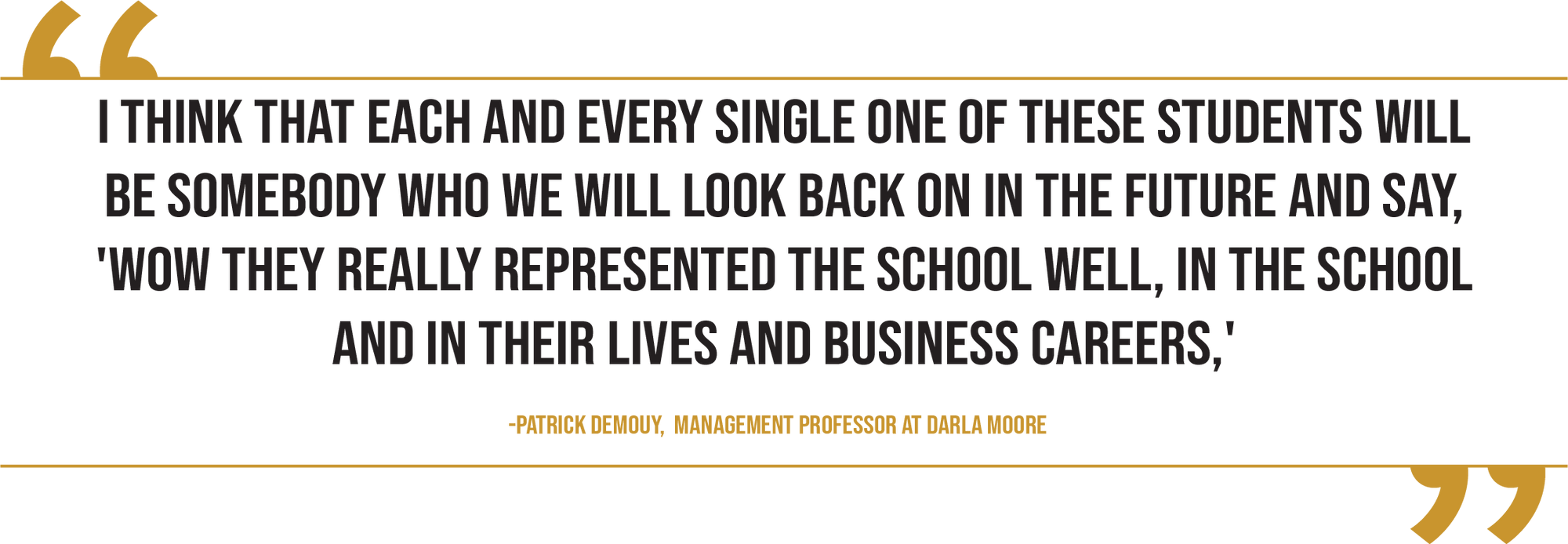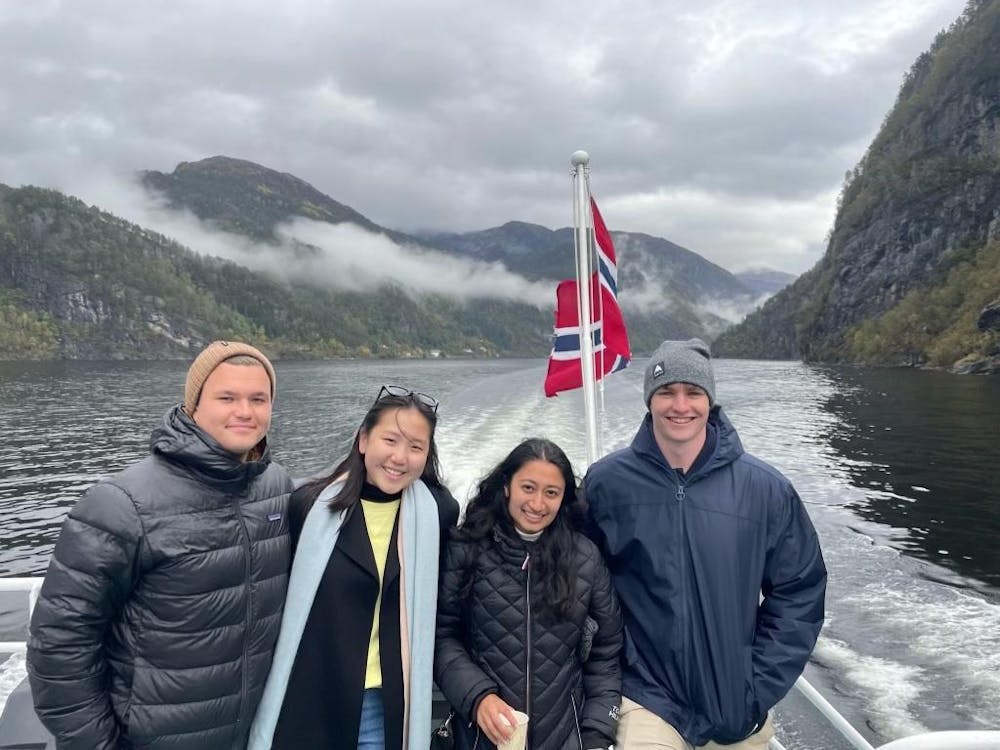Four USC students from the Gamecock Consulting Club won an international competition in Bergen, Norway, which was held from Oct. 2 to 6.
Su Bin Park, a fourth-year marketing and operations and supply chain student, is the co-director of member development for the club. She personally selected the students she thought would best represent the club to travel to Norway.
“I would not have been able to do any of what I did without my group and the support of them,” Park said. “And none of us, honestly, expected to win. These competitions are the best business schools around the world (that) come to these competitions.”
Park said the club serves as a valuable tool to gain experience and form connections for USC students who want to join the consulting field, especially when competing with other highly ranked universities. Being a part of the Gamecock Consulting Club helps members stand out in the professional world, she said.
“It’s really hard to get your foot in the door because (USC doesn't) have as many alumni,” Park said. “We’re not really being recruited from these top firms, and so the Gamecock Consulting Club really served as a resource.”
The four students from the Darla Moore School of Business — Su Bin Park, Kavya Patchipulusu, Cameron Overton and Jack Marshall — teamed up to compete against 11 other top business schools from around the world for the NHH Norwegian School of Economics’ NHH International Case Competition. While these students are in the Gamecock Consulting Club, students do not have to be members of the club to compete in case competitions on behalf of USC.
Cameron Overton, a third-year finance student, joined the Gamecock Consulting Club after previously competing in case competitions that the club has hosted. During case competitions, each team is given a real-life business problem, which they must come up with a strategy to solve and present it to the judges.
Overton said that winning the competition meant a lot to him because of how hard he and his team worked to accomplish it.
"It was definitely just a whole lot of excitement. Very grateful to our advisor and being able to look at him and see sort of the how proud he was of the work that we put in and that we were actually going to pull it off," Overton said. "So definitely pretty surreal."
Overton said that the experience of being in the club, such as previously competing in case competitions, was a key factor in the team’s success. It's helpful to have a team with dynamic skill sets in these types of high-stakes international competitions, he said
“When you’re put under that kind of pressure and that kind of stress, having teammates that you know you can trust and rely on is very, very helpful,” Overton said. “And it was definitely an advantage for us.”
The club helps its 87 members build technical skills that they can use in the future, such as interviewing for jobs, working in teams and problem-solving. The club also provides opportunities for networking with USC alumni as well as helping solve problems for local businesses in Columbia.
These skills can give students the tools they need to become employed at successful consulting and accounting firms known as "the big three" and "the big four," Overton said.
In the international competition, each team had 24 hours to solve a case for REMA 1000, one of the largest grocery chains in Norway and Scandinavia.
The teams were asked to come up with a strategy to help the company improve carbon emissions without increasing its prices. Overton said his team strategized by building off of each other’s strengths.
"When you're actually competing, you get the case and then you have 24 hours the whole time until you have to submit it and then present later that day," Overton said. "So, it's a lot of divide and conquer. Who can handle a lot of the heavy research parts early on? Who's going to be better at designing?"
The USC students visited a REMA 1000 grocery store during their visit to get feedback from customers and managers to use in their presentation. They used this information to come up with ways for the company to internally implement strategies to cut carbon emissions as well as encourage suppliers and customers to become more ecologically friendly.
Patrick DeMouy, a senior instructor in Darla Moore's management department, has been helping students at the university get involved with case competitions for over 25 years. Before traveling with the students to Norway, he held over 10 meetings to help the team practice talking in front of a large audience and prepare their presentation slides.
DeMouy said that the team's biggest challenge during the case competition in Norway was trying to understand the underlying factors of the Norwegian market in comparison to the United States.
When working on building a case to help REMA 1000 become more carbon neutral, the team was unaware of how high grocery taxes are in Norway, he said.
“In South Carolina, the taxes on groceries are, you know, 1, 2, 3%,” DeMouy said. “In Norway, they’re well over 20%.”
DeMouy said the students had such an outstanding performance that the judges reached out to them after the competition to ask if they were interested in providing additional information. The judges also gave them an opportunity to give feedback to REMA 1000, he said.
“I think that each and every single one of these students will be somebody who we will look back on in the future and say, 'Wow they really represented the school well, in the school and in their lives and business careers,'” DeMouy said.

Members of the club plan to travel to countries such as Spain and Canada for more international case competitions later this year, Park said.
The Gamecock Consulting Club hosts general member meetings every other week, where it holds recruitment at the beginning of each semester and discusses upcoming opportunities for new members.

